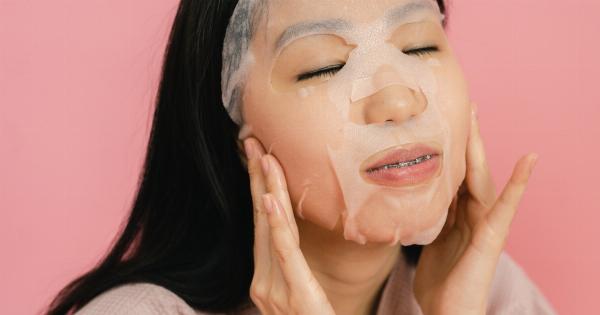Did you know that the health of your hair can be an indicator of your overall health and nutritional status? Hair follicles require a complex mix of nutrients to grow healthy, strong strands of hair.
When we don’t get enough of these key nutrients, our hair can become dry, brittle, and prone to breakage. Here are some signs in your hair that you may be missing essential nutrients:.
1. Dull, Lifeless Hair
If your hair looks lackluster and lacks shine, this could be a sign that you’re not getting enough essential fatty acids.
Omega-3s, in particular, are crucial for healthy hair, as they help to lubricate and nourish hair follicles, promoting healthy growth and shine. You can get omega-3s from fatty fish like salmon, as well as from flaxseeds and chia seeds.
2. Dry, Brittle Hair
Dry, brittle hair that breaks easily is often a sign of a protein deficiency. Hair is made up of a protein called keratin, so getting enough dietary protein is essential for healthy hair growth.
Good sources of protein include lean meats, fish, eggs, and tofu.
3. Thinning Hair
If your hair seems to be getting thinner and weaker over time, this could be a sign of a nutrient deficiency, such as iron or biotin. Iron is crucial for healthy blood flow, which helps to deliver nutrients and oxygen to the hair follicles.
Biotin, on the other hand, helps to strengthen hair and nails and can be found in foods like eggs, nuts, and whole grains.
4. Hair Loss
Excessive hair loss can be a sign of a nutritional deficiency, such as a lack of vitamin D or zinc. Vitamin D is important for promoting hair growth and can be obtained through sunlight exposure or supplements.
Zinc, on the other hand, is essential for healthy hair growth and can be found in foods like oysters, beef, and pumpkin seeds.
5. Slow Hair Growth
If you notice that your hair seems to be growing more slowly than usual, this could be a sign of a nutrient deficiency, such as vitamin E or magnesium.
Vitamin E is an antioxidant that helps to improve hair growth by reducing oxidative stress and inflammation in the scalp. You can get vitamin E from foods like nuts, seeds, and leafy greens. Magnesium, on the other hand, helps to strengthen hair follicles and can be found in foods like spinach, almonds, and avocado.
6. Premature Gray Hair
If you’re noticing more gray hairs than usual, this could be a sign of a copper deficiency. Copper is an essential mineral that plays a key role in hair pigmentation. You can get copper from foods like shellfish, liver, and dark chocolate.
7. Scalp Problems
Scalp issues like dandruff and flakiness can be caused by a variety of factors, including stress, hormonal imbalances, and nutrient deficiencies. In particular, a lack of essential fatty acids, vitamin A, and zinc can contribute to scalp problems.
You can get vitamin A from foods like sweet potatoes, carrots, and spinach.
8. Split Ends and Breakage
Split ends and breakage can be caused by a lack of moisture and hydration. Drinking enough water and eating foods with a high water content can help to keep hair hydrated and healthy.
Additionally, getting enough vitamin C is important for collagen production, which helps to prevent breakage and split ends.
9. Slow-Repairing Hair
If your hair seems slow to recover from damage and breakage, this could be a sign of a lack of vitamin B6 or amino acids. Vitamin B6 is important for hair growth and repair and can be found in foods like salmon, chicken, and bananas.
Amino acids, on the other hand, are the building blocks of protein and can be obtained from foods like eggs, meat, and poultry.
10. Brittle, Weak Nails
If you’re experiencing weak, brittle nails that break easily, this could be a sign of a nutrient deficiency, such as biotin, iron, or vitamin C. Biotin helps to strengthen nails and can be found in foods like eggs, nuts, and whole grains.
Iron and vitamin C are also important for nail health, with iron helping to promote healthy blood flow and vitamin C aiding in collagen production and repair.





























